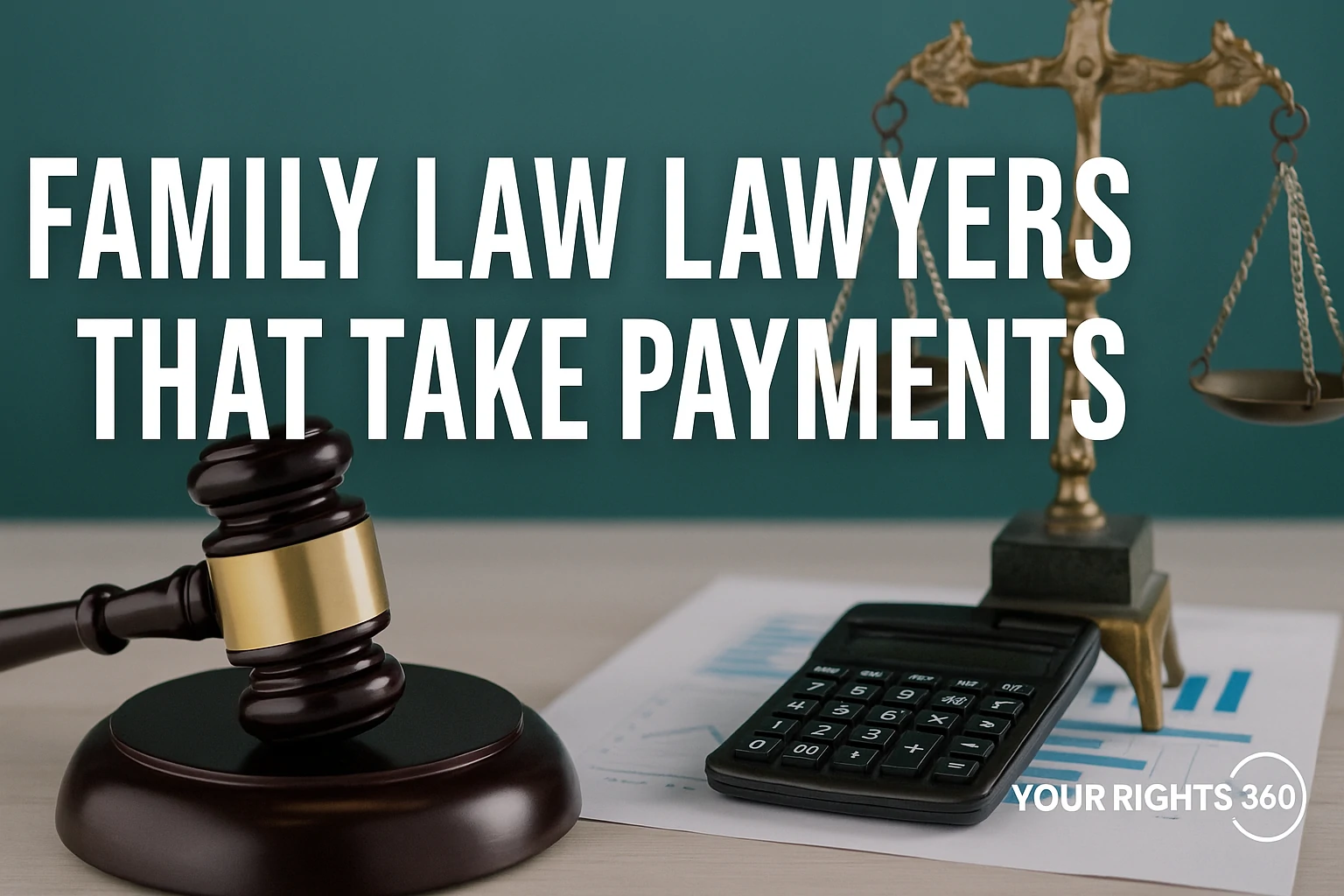Legal problems can strike without warning. When they involve family matters, the pressure grows fast. Divorce, custody, or support issues often bring emotional and financial strain. In these moments, people do not just need legal help, they need flexible options to afford that help.
Many families hesitate to contact a lawyer because of cost. They fear high fees and upfront charges they cannot afford. Still, they know they need guidance. They know that without legal support, their case could fall apart. This fear often leads people to delay action or settle for less.
Family law covers some of life’s most personal issues. These cases affect children, homes, income, and daily life. A missed deadline or a bad move in court can change your future. Legal help becomes more than just advice. It becomes protection. But what happens when money gets in the way?
This is where payment plans come in. Some family law lawyers offer flexible payment options. They understand your situation. They know not every family has savings set aside. These lawyers give you a chance to move forward without paying all at once. This guide explains how they work, where to find them, and what to expect when you hire one.
Why Payment Plans Help in Family Cases
Family law touches areas that can change your life. A court order can impact your home, your income, or your relationship with your children. These matters often come up without warning. Many people do not plan for legal battles. They do not have time to wait or save.
Legal services cost money. A skilled lawyer charges for research, court time, and communication. You also pay for filing, documents, and hearings. In many cases, the total cost adds up fast. This creates stress for people who live paycheck to paycheck.
Payment plans give clients a real choice. Instead of avoiding legal help, you can hire someone and pay in parts. This creates access to justice. It opens the door to support that otherwise feels out of reach. Families in crisis should not face legal trouble alone. Payment plans help close that gap.
Some lawyers view it as fairness. Others see it as smart business. Either way, the result stays the same. You get to act on your rights. You get to protect your family. And you do it without going broke in the process.
What a Payment Plan Means
A payment plan allows you to hire a lawyer without paying the full amount upfront. Instead of one large fee, you agree to split the cost into smaller payments. Some lawyers may ask for a small deposit to begin. Others will create a schedule that matches each step of your case.
Every plan depends on the lawyer. Some ask for monthly payments. Others break costs into pieces that match court actions. A written contract should explain the terms. It should list how much you owe, when it’s due, and what happens if you fall behind.
In some cases, lawyers use outside financing. These services may check your credit before offering terms. In other cases, the lawyer creates a simple agreement directly with the client. The most important part is that everything stays clear and in writing.
If a lawyer cannot explain the plan in simple terms, you should pause. Trust and honesty matter in legal work. If a payment plan feels confusing, ask questions until you understand.
Who Offers This Kind of Help?
Not all lawyers accept payments over time. Larger firms often avoid it. They focus on high-paying clients or fast cases. These offices may ask for full payment before they begin. If you cannot meet their demand, they may turn you away.
Small law firms or solo attorneys may be different. They often work with local families and understand the financial limits people face. These lawyers are more likely to create flexible options. They want to help, not just bill.
Some community programs or legal aid groups also know lawyers who offer payment plans. These groups focus on helping people in need. If you qualify, they may refer you to a trusted attorney who understands your limits.
You can also use online directories to find lawyers who allow payments. Many sites now let you filter by payment method. You can read reviews, check their location, and find one that fits your needs. This saves time and lowers the pressure before that first call.
What You Should Ask Before You Agree
Once you find a lawyer, take time to ask about payment terms. Do not rush. Do not guess. Ask clear questions and expect clear answers. You have a right to know how much you will pay and what you will get.
Start with the basics. Ask how much is due at the start. Ask how often you must pay. Ask what happens if you miss a payment. Some lawyers will pause work if you fall behind. Others will charge fees. You should know all this before you sign.
Also ask if the plan includes interest or extra charges. Some lawyers add a fee for payment plans. Others do not. Always ask for a full list of costs. It should include filing fees, court costs, and anything outside the lawyer’s time.
Make sure everything is in writing. A real lawyer will give you a written contract that explains every detail. Do not trust deals made over the phone or by text. Keep records of payments, agreements, and receipts. This protects you if anything goes wrong later.
Common Family Law Cases That Need Payment Flexibility
Some family law issues appear fast. Others build slowly over time. In both cases, payment options help people act without delay. Here are a few examples where payment plans matter most.
Divorce often costs thousands of dollars. It includes court papers, financial records, and sometimes heated battles over property. A payment plan allows you to begin the process and work through it without draining your savings.
Custody cases involve your children. They create stress and require smart legal steps. Whether you seek full custody or defend your rights, the cost can grow fast. A lawyer who takes payments lets you move forward without waiting months to prepare.
Spousal support cases often arise in divorce. Whether you need support or must defend against a claim, a lawyer gives you tools to protect your income. A payment plan lets you act early instead of letting the court decide without you.
Domestic violence creates urgent need. People in danger must act fast. Some lawyers partner with shelters and support groups. They may offer flexible or low-cost options in these cases. A payment plan can make safety and legal action possible at the same time.
If your case involves money after marriage, the postnuptial agreement guide explains why legal help matters.
How to Find a Lawyer That Works With Payments
Start close to home. Many local bar associations keep lists of lawyers by type and fee structure. You can ask if they know lawyers who take payments. Some will point you to a specific name. Others will suggest a legal clinic or referral service.
You can also search online using the right terms. Try words like “family lawyer with payment plan,” or “divorce attorney that takes payments.” Look for trusted websites that list real lawyers, not just ads. Read reviews and note how the lawyer talks about clients.
Talk to people in your community. Churches, nonprofits, and community centers often know lawyers who help families in crisis. A trusted friend may also share their experience.
Once you find someone, ask questions before you agree. Focus on the cost, the timing, and what the lawyer will do. A good lawyer will speak with respect. They will not rush you. They will explain everything in clear words.
Pros and Challenges of Using a Payment Plan
Payment plans bring access. They help people act when time matters most. They reduce stress and let you plan. You do not have to wait until you save up or borrow money. You can protect your rights now.
Still, plans come with challenges. Some include interest or late fees. Others may limit the lawyer’s work if you fall behind. You still owe the full amount, even if you pay it slowly.
You must keep track of what you owe. You must make each payment on time. If you stop paying, your lawyer may stop working. That can hurt your case. Make sure the plan matches your income and budget before you sign.
You can also check the Florida Basic Family Law CLE to see how the process works in your state.
Conclusion
Family law issues strike at the heart of life. They involve the people and things that matter most. They also come with real costs. That’s why payment plans matter. They give people a way to get help when money feels tight.
You do not need to face divorce or custody problems alone. You can find skilled lawyers who offer clear, simple payment terms. These plans let you act now and pay over time. They give you space to breathe without giving up your rights.
Take time to ask questions. Read the full agreement. Stay honest about what you can afford. A good lawyer will meet you with respect. They will walk with you step by step. You deserve help. A payment plan may be the first door to open that help.
Still Have Questions?
Q. How do I know if a lawyer will accept payments?
You can ask during your first call or message. Just say you want to know if payment plans are available. A clear answer means the lawyer understands your needs.
Q. Can I still get strong legal help if I use a payment plan?
Many skilled lawyers work with payment plans. They care about helping families, not just collecting money. Their legal work stays strong, even if you pay over time.
Q. What if I miss a payment during my case?
Some lawyers will pause work until you catch up. Others will charge a fee. The contract should say what happens. Always stay in touch with your lawyer if something changes.
Q. Are payment plans available in every state?
Most areas have lawyers who offer flexible fees. Larger cities may have more options. Rural areas may need more time to search. Local bar groups can help you start.
Disclaimer:
This content is for general information only. It does not give legal advice. Do not rely on this article to make legal decisions. Always speak with a licensed attorney about your specific case or legal needs.




